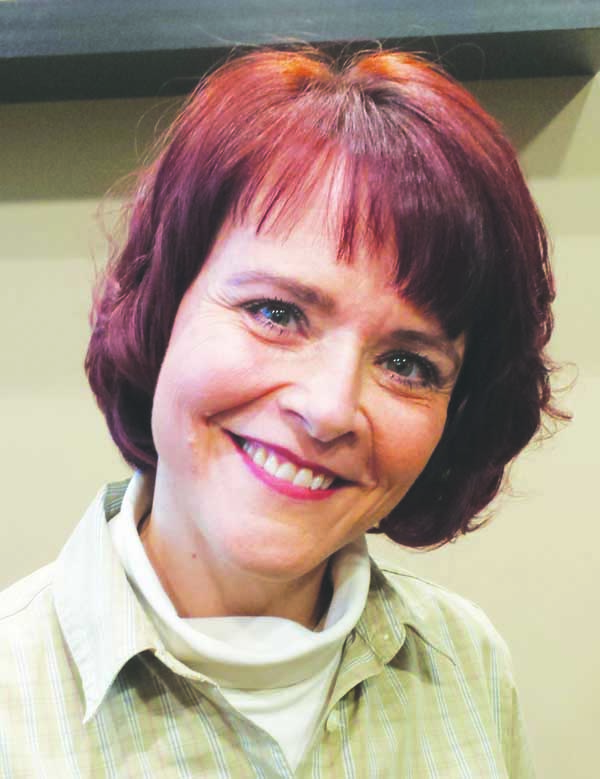By Danei Edelen-
An attorney to the stars and a Midwestern mother, by all outward appearances, we have nothing in common. Yet, after reading Modern Madness: An Owner’s Manual, I know we are sisters of the soul.
As a successful entertainment attorney in Beverly Hills, Terri Cheney represented the likes of Michael Jackson, Quincy Jones, and major motion picture studios. When released, her book, Manic: A Memoir, quickly became a New York Times bestseller. Terri now devotes her advocacy skills to the cause of mental illness. My name is Danei Edelen. I am President of the National Alliance on Mental Illness (NAMI) Brown County affiliate.
Terri Cheney’s words in Modern Madness whisked me back to some of my most vivid, awful, and euphoric experiences of my bipolar, roller-coaster life. Modern Madness was riveting for me. As a fellow mental health advocate, I applaud Terri Cheney’s courage and candor in writing Modern Madness. While reading, I found myself taking notes of passages I wanted to read to my husband! “See, I am not the only one!” I said.
My first epiphany occurred when I read Cheney’s words, “as is the case with so many people who have bipolar disorder, it took years —almost a decade—before I was properly diagnosed.” My mental illness odyssey has taken me over a decade as well. “I was really shocked when I learned it. I thought I was the only one,” Cheney commented in our interview earlier this month.
“When someone discloses to me that they are mentally ill, they open up a window of vulnerability where we are able to be ourselves. That’s a world I want to live in,” Cheney remarked. As do I.
One topic we discussed was the challenge of getting the right medication for each person’s body chemistry. “It’s mind-boggling, and you need an advanced mixology degree to prepare the perfect cocktail—which is only arrived at by months, sometimes years, of trial and error and constant, ongoing tweaking,” Cheney so eloquently writes in Modern Madness. “In the end, faith and hope are the key ingredients in any medication cocktail. Faith in your doctors and hope that this last little pill will finally, please God, take the pain away and make you feel normal—or at least like everyone else.”
We also discussed the highly emotional topic of medication compliance. “Medication compliance isn’t easy—it’s rather heroic, when you consider how difficult it can be. But it’s critical for those of us who need these drugs to live productive, healthy lives. Pill Shaming doesn’t occur with insulin; there is no reason it should occur with medications used to treat a brain disfunction,” Cheney writes in Modern Madness. I couldn’t agree more.
Cheney and I concur: when it comes to giving advice to someone living with a mental illness—don’t. “So—and the irony is thick here—don’t give advice is sometimes the best advice, even in the most challenging relationships. But there are other ways of helping out that don’t elicit the same knee-jerk defiant reaction. Instead, listen closely. Educate yourself thoroughly about the situation so you can explore possible options. Ask thoughtful questions. Consult experts. Encourage the person’s own sound contributions. Model the behavior you hope to inspire. You’ll learn far more about the person and the problem than you ever would have if you had simply resorted to giving advice,” Cheney explains.
We also discussed the power of small acts of kindness. In Modern Madness, Cheney writes, “The world may be brutal at times, but it’s also capable of great compassion, and that’s a world I want to live in. I’ll never again underestimate the boundless power of a small benevolence. I know now what that transactions’ worth—you not only get to reap the karma, you may just rewrite a life.” During our interview, Cheney elaborated. “One time, when I was so depressed and suicidal, I made this amazing discovery. People through their small acts of kindness brought me back from the brink. It’s incredible.”
Cheney mentioned one silver lining in her own life from her experiences. “That’s one the strange benefit of being bipolar or having a mental illness or even suffering through COVID, you develop humility and empathy. Frankly, as an entertainment lawyer, I was not encouraged to be compassionate or empathetic,” Cheney reflected. “Now I am living in a world where I see other people suffering and I know what that feels like. I feel better about myself, being empathetic. It is just a softer, lovelier place to be.”
As Cheney writes in Modern Madness, “when mentally ill individuals find the courage to disclose their illness to others, they combat their own self-stigma and other people’s harmful misconceptions. It’s a powerful weapon against a life threatening enemy.” Cheney words also ring true in my own life.
Reading Cheney’s book will give anyone valuable insight into the heart and mind of one living with a mental illness. With one in five individuals in this country wrestling with a mental illness, I heartily recommend that everyone purchase Modern Madness for the sake of their loved one. Since COVID-19 everyone has experienced depression in one form or another: Modern Madness is an owner’s manual for everyone.
Danei Edelen is the president for the NAMI Brown County Ohio affiliate. Edelen is a mental health advocate for the Brown County Board of Mental Health & Addiction Services. She is also a mental health columnist for the Brown County Press, Clermont Sun, People’s Defender, Times Gazette and the Wilmington News Journal. You can contact Danei at (513) 436-0010 or daneiedelen@gmail.com.





